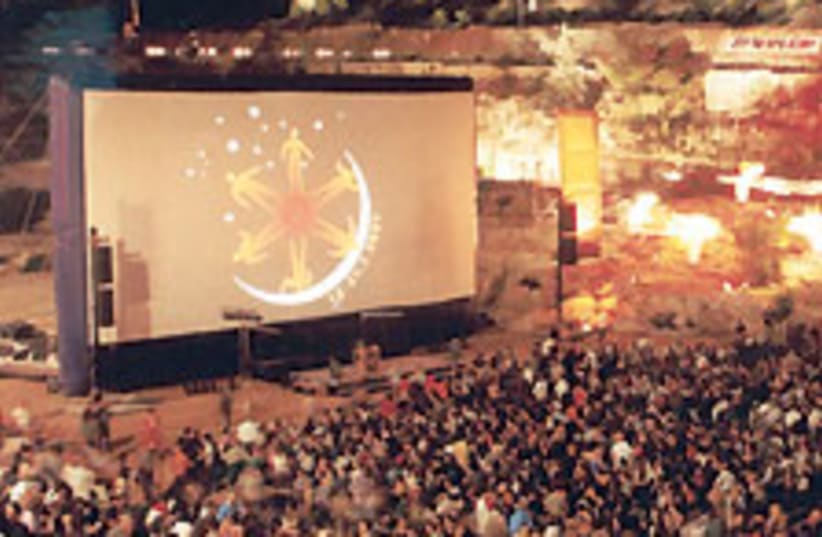European filmmakers spend a 'Sunday in the Country' in Israel
12 directors come for program led by the European Film Academy (EFA) in conjunction with The New Israeli Foundation for Cinema and TV.
Twelve young documentary filmmakers from across Europe gathered in Israel this weekend for an informal discussion of filmmaking.
The 12 were participants in Sunday in the Country, a program led by the European Film Academy (EFA) in conjunction with The New Israeli Foundation for Cinema and TV.
The group of four Israelis and eight Europeans was hosted by David Fisher, director of The New Israeli Foundation for Cinema and TV, and joined by Hans Robert Eisenhauer, commissioning editor ZDF/ARTE; award-winning director Nino Kirtadzé; Kirsten Niehuus, managing director of film funding at Medienboard Berlin-Brandenburg GmbH, and Marion Döring, director of the European Film Academy and producer of the European Film Awards.
Established in 1995, Sunday in the Country meets in a different nation every year to promote an exchange of ideas and cultural values, and to allow both established and rising filmmakers to network.
Mikhail Bouchler, a former Sunday in the Country participant, reflected on his experience in the program: "As unique as all of us were, this weekend made me realize that we all had one very strong thing in common: our love for cinema, for filmmaking and all the difficulties we experience in trying to make good films. Film is one of those universal languages that is stronger than any boundaries. I realized [this] very strongly during Sunday in the Country. The people I met there were wonderful."
While not a European nation, Israel's recent universal success in the documentary film arena made it a natural setting for the program. The EFA invited Israel to host this year's five-day conference, which was timed to coincide with the Jerusalem International Film Festival.
Anat Dotan, manager of international relations and special projects at the New Israeli Foundation for Cinema and TV, told The Jerusalem Post that Israel, especially Jerusalem, was a "very interesting place for documentary filmmakers because it is comprised of so many different elements and therefore has opportunities for so many stories."
One of this year's participants, Wojciech Kaspersui from Poland, echoed Dotan's feelings about Israel. "It is important to get into Israel and Jerusalem. The history of this piece of land is worth knowing. Here we can develop ideas for the future," he told the Post.
The program was slightly different this year. Sunday in the Country participants generally spend their time in a remote location conversing over meals, watching films, and enjoying the landscape. But this year, they split their time. The group spent the first half of the trip touring and participating in the Jerusalem International Film Festival and at workshops in Jerusalem, and the remainder at rural lodgings at Timrat in the Jezreel Valley, which provided the atmosphere necessary for dialogue encouraged by viewings of participants' films. There, says Dotan, they could derive inspiration from "sharing their cinematic film language with each other."
Sunday in the Country also lays foundations for possible co-productions and progress in documentary film. Hyacinthe Pavlides, a producer from Cyprus, commented, "Here, we can learn the development of the genre of documentary by seeing how different people use it for educational, political, and sociological purposes."
if(catID != 151){
var cont = `Take Israel home with the new
Jerusalem Post Store
Shop now >>
`;
document.getElementById("linkPremium").innerHTML = cont;
var divWithLink = document.getElementById("premium-link");
if(divWithLink !== null && divWithLink !== 'undefined')
{
divWithLink.style.border = "solid 1px #cb0f3e";
divWithLink.style.textAlign = "center";
divWithLink.style.marginBottom = "40px";
divWithLink.style.marginTop = "40px";
divWithLink.style.width = "728px";
divWithLink.style.backgroundColor = "#3c4860";
divWithLink.style.color = "#ffffff";
}
}
(function (v, i){
});

